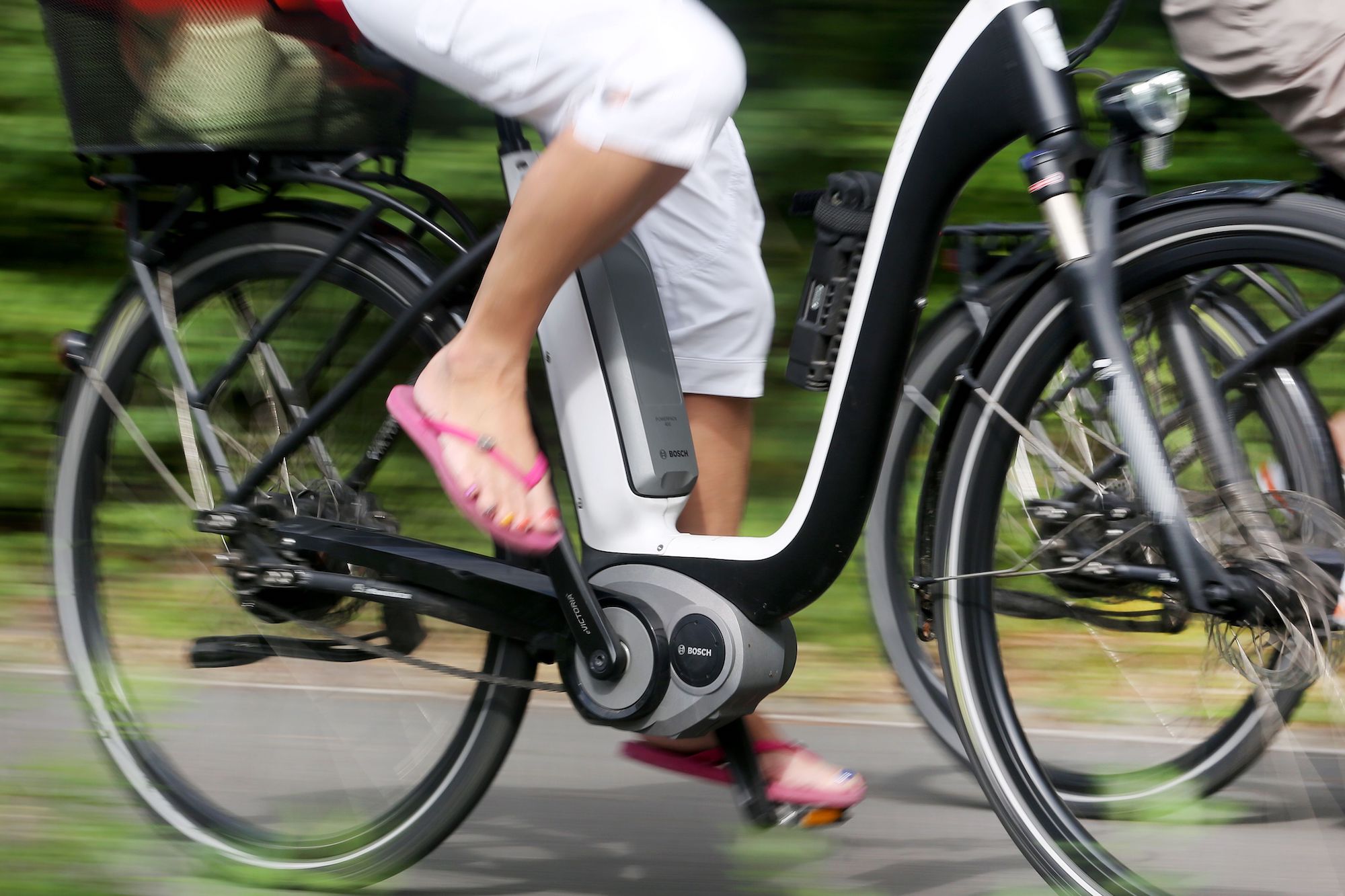Is your e-bike legal? Experts share their advice so you don’t break the law
E-bikes only continue to grow in popularity, but here’s how you can stay on the right side of the law (and protect your warranty)


The e-bike revolution continues to gather momentum around the world, but the rules governing power-assisted machines are strict - here’s how you can avoid breaking the law.
In the UK, the government has put in place legislation that separates and electric bike from a a moped or other motor-powered vehicle.
E-bikes, or electrically assisted pedal cycles (EAPCs) can be ridden by anyone over the age of 14 without tax, insurance or registration, as long as your machine meets a few certain criteria.
If you’re buying a second-hand e-bike, a brand new machine online, or maybe considering making changes to your current bike, you need to be aware of the e-bike rules, to make sure you don't need tax and insurance.
>>> Best electric bikes: everything you need to know about e-bikes
Cycling Weekly has sought expert advice to help you ensure you stay on the right side of the law when riding your e-bike:
What the UK government says
The UK government website has a number of helpful guidelines to help you check if your e-bike is legal, most notably the pedals.
The latest race content, interviews, features, reviews and expert buying guides, direct to your inbox!
An EAPC must have pedals that can be used to propel it and must not have an accelerator that works independently when the rider is not pedalling, also known as ‘twist and go’.
The electric motor must only have a maximum power output of 250 watts and should not be able to propel the bike when travelling more than 15.5mph (or 24.9km/h).
Your e-bike must also show its power output and the manufacturer of the motor, while it must also show either the battery voltage or the maximum speed of the bike.
If your bike meets this criteria, it can be classed as an EAPC and can be ridden in all the same places you are allowed to ride your standard pedal bike.
But if your bike breaches any of these rules, the machine is now classified as a motorcycle or moped.
What the experts say
To get more insight into the e-bike rules, we asked David George, the CEO of cycle-specific insurer Bikmo, to find out what you should look out for on your e-bike:
“If you’re a road rider, you’ll know 15.5mph is not very fast, but e-bikes can only get up to that sort of speed, so what a lot of people are doing is either buying a derestriction kit that takes it above that limit or buying a conversion kit - we recently had to deny [an insurance claim] for one that went up to 1,000w.
“There are also a lot of bikes being sold that have got two wheels and pedals, but it’s twist and go, so in effect it’s a moped."
Another option available to cyclists is an e-bike conversion kit, which lets you turn a standard pedal bike into an e-bike by attaching an aftermarket motor and battery to the machine. While there are options available to legally convert your bike to an e-bike, there are also options on the market that will not be legal to use on the road without insurance, so it's important you know what you're buying. It's also worth noting that converting or modifying your bike or e-bike could void any warranty.
Along with regular cycling insurance, which includes cover for your bike, accessories, and public liability cover, Bikmo also offers specialist e-bike insurance.
While insurance for e-bikes is not legally required, it could be a wise investment given the buying cost of some e-bikes.
When buying your e-bike, George says it’s important to be aware of what you’re getting, whether it be from a cycling retailer or through a second hand sale: “I think there's two issues, one of which is the fact that a bikes are being sold in stores without the store making it super clear to the purchaser that this is not a bike and it falls into the moped category.
“The second thing I think people don’t realise is that if you buy something from Amazon with a 500w output, it can go faster and that might feel good to you but unfortunately it spills into the area of not being legal.”
He added: “We absolutely want people to ride more e-bikes, where the big boom and the cycling revolution is coming."
Protecting your warranty
While the legal aspect is the most important detail of e-bikes for most riders, changes to your e-bike could also impact the manufacturer warranty on your bike if something goes wrong.
For example with the popular British folding bike brand Brompton, buyers can get a free replacement part free of charge for any material or manufacturing defect on their machines within two years.
Brompton has moved into the electric bike market with the Brompton Electric, a pedal-assist machine on sale for around £2,800 up to £3,200.
While you can make changes to non-safety critical components like your saddle or grips, any modifications or turning to your bike could risk voiding the warranty.
A spokesperson for Brompton said: “The Brompton Electric went through years of research, development, and testing to ensure the bike we all know and love could handle the force of an electric motor whilst maintaining all its world-class qualities. It was developed from the ground up by our skilled designers and engineers to meet all the electric bike regulations. This means any modifications made by someone untrained could risk altering the design and making the bike dangerous. Therefore modification or tuning to the Brompton Electric invalidates the warranty.”
The spokesperson added: “Several Brompton frame parts had to be reinforced or altered to meet both the higher mechanical and electrical standards necessary
“In cases of accidents, liability for bikes with after-market conversion rests on the person who fitted the system. Electric bikes need to meet strict legal and safety regulations for each market. Our e-bike, the Brompton Electric was developed from the ground up by our skilled designers and engineers to meet these regulations. Adding an e-bike conversion kit to your folding Brompton will invalidate the warranty on your bike.”
Alex Ballinger is editor of BikeBiz magazine, the leading publication for the UK cycle industry, and is the former digital news editor for CyclingWeekly.com. After gaining experience in local newsrooms, national newspapers and in digital journalism, Alex found his calling in cycling, first as a reporter, then as news editor responsible for Cycling Weekly's online news output, and now as the editor of BikeBiz. Since pro cycling first captured his heart during the 2010 Tour de France (specifically the Contador-Schleck battle) Alex covered three Tours de France, multiple editions of the Tour of Britain, and the World Championships, while both writing and video presenting for Cycling Weekly. He also specialises in fitness writing, often throwing himself into the deep end to help readers improve their own power numbers. Away from the desk, Alex can be found racing time trials, riding BMX and mountain bikes, or exploring off-road on his gravel bike. He’s also an avid gamer, and can usually be found buried in an eclectic selection of books.
